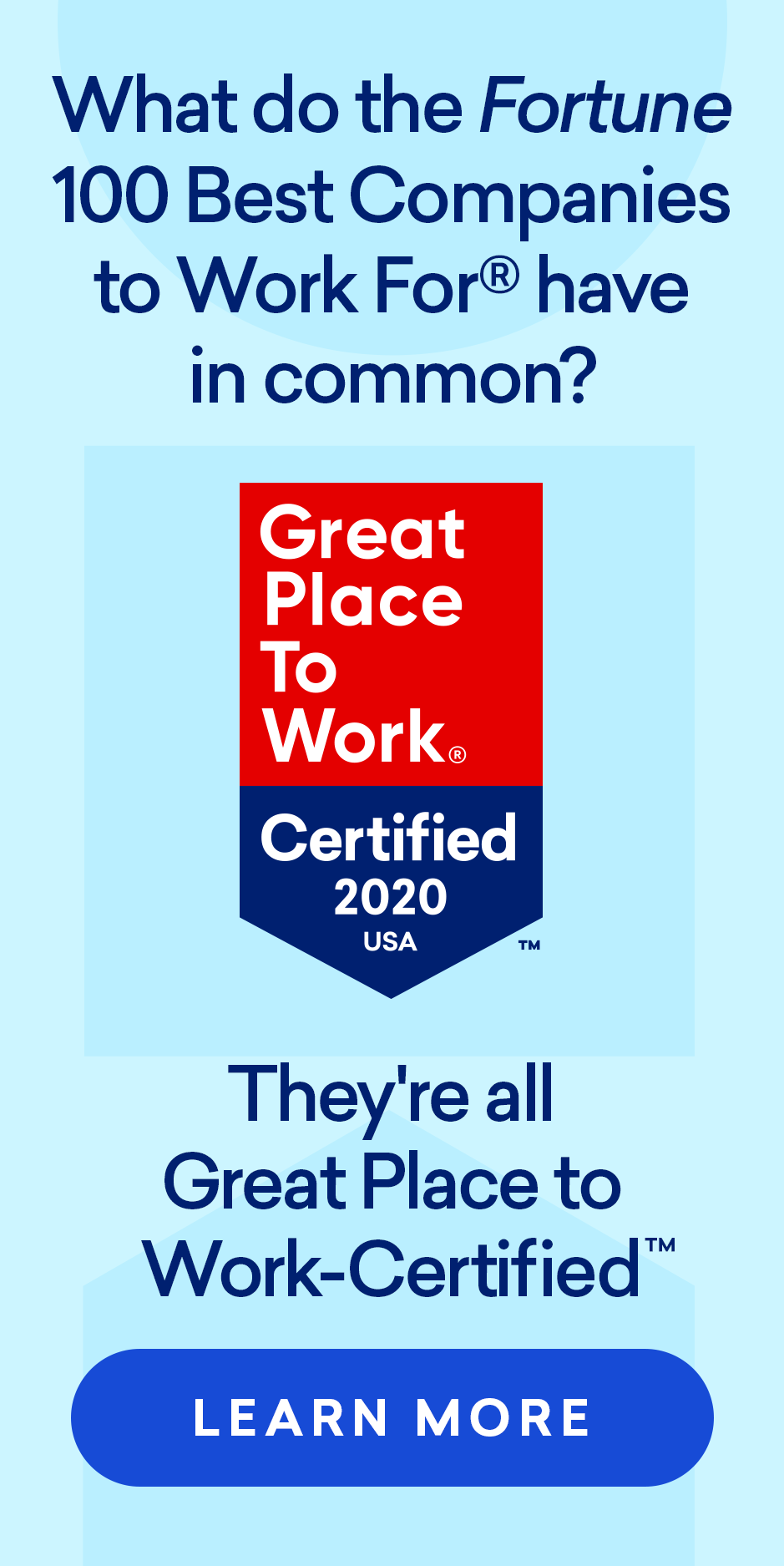Should We Be Adopting Their Ways?
SAS CEO Shows Why Treating Employees Well Is Better for Business
After reading the New York Times' recent dystopian portrayal of the work culture at Amazon.com, it's hard to imagine anyone not feeling a whole lot better about their own job situation.
In case you missed it, the Times digested feedback from 100 current and former Amazon employees in describing an environment where people work punishing schedules that obliterate work-life boundaries, compete against one another for survival and are culled from the herd when faced with a personal crisis. Amazon's burn-and-churn conditions, and almost non-existent perks, are the manifestations of an "experiment in how far it can push its workers," alleged the Times.
While the company's management was quick to refute the paper's brutal depiction, what's irrefutable is that Amazon's more severe management practices deliver results. Its stock has appreciated ten-fold in just the past seven years and the firm recently eclipsed WalMart as the most valuable retailer in America. This is an organization that routinely delivers on its strategic mission.
Which begs the question: "Based upon Amazon's uncommon success, wouldn't it be wise for most companies to ditch their nascent commitment to improving employee engagement – and happiness – and return instead to traditional leadership methods which intentionally squeeze workers into higher and higher productivity?"
To help us answer this question (Spoiler Alert: in the end, you'll have to decide for yourself), I solicited the insight of Dr. Jim Goodnight, CEO of the software analytics firm, SAS. Goodnight is the chief architect of a workplace culture that intentionally and authentically values its people, and believes turnover is anathema to its success. While being profitable – and earning record revenues – for the past 39 consecutive years, SAS has been designated a "Great Place to Work" since 1984. Twice, it's been named by Great Place to Work® and Fortune Magazine as the best company to work for in the U.S. and, in 2012 was the first organization ever to be awarded the title, "Best Multinational Workplace."
Noting that Goodnight has a friendship with Amazon's CEO, Jeff Bezos, and is skeptical that some of what was written in the Times article may be overstated, I asked him to share his thinking and leadership philosophy with respect not necessarily to Amazon directly, but to any company that manages in the manner Amazon purportedly does. Here are four of his most compelling conclusions about building sustainably high performing teams and organizations.
1. Oppressing Employees Undermines Loyalty & Innovation
As a graduate student in the 1960's, Goodnight worked on the Apollo space program, often very late into the night when he had greater access to NASA's computers. Proud of the dedication he was giving to his job, he bristled every time he was reported for arriving at work a minute or two late. "Everyone worked in cubicles, coffee was only available at vending machines; I learned that treating people indifferently resulted in huge turnover," he told me.
Noting that NASA saw more than half its workers quit, Goodnight set out to do things differently as he started his own company. "I was fortunate to found one of the first knowledge companies with over 90 percent of my employees being college graduates. And I had the direct experience of knowing that you can't treat people like the factory workers of old – with time clocks and strict hours. It doesn't fit with getting the best out of these creative people. My goal was to find ways to make them feel that I cared about them and that I respected them. To me, it was common sense."
In an industry where 20 percent annual turnover is common, SAS routinely sees less than 5 percent of its people leave each year. In 2014, the company received 60,000 job applications – nearly 100 for every opening. And while Amazon's median employee tenure is just one year, SAS's is fifteen times longer. So many SAS employees celebrate decades' long employment anniversaries, in fact, Goodnight now only has time to hand-sign congratulatory letters to those with tenure of 25 years or longer.
2. Caring For People Lets You Set Very High Expectations
Right before Google had its initial public stock offering nearly a decade ago, it sent a team of human resources executives to benchmark SAS. Long before Google became known for offering employees generous perks, SAS was already providing free on-site health care, workout facilities and deeply discounted meals – all for the purpose of demonstrating to employees that they were both valued and essential to the long-term success of the company.
While the easy assumption to make is that "spoiled" workers inevitably grow soft in the middle and massively underperform, SAS has proven otherwise. "Everyone understands that we must get new products into the market because of competition," says Goodnight, "but we don't have to drive people to achieve it. What we do is set tight schedules and hold people accountable to meet them."
SAS pays its employees well and is generous with bonuses and profit sharing. But Goodnight believes much of his company's success is owed to the fact that people are put into the right jobs and given very challenging work. "That's what our people are most interested in," he said.
Goodnight beamed when he told me that three-quarters of the company's innumerable product innovations bubble up from employees, not management. "Knowing that they're personally contributing to the achievements of the company is one big reason our people stay."
3. Employee Stack-Ranking Is A Stone-Aged Managerial Relic That Destroys Human Spirits
Generally soft-spoken, Goodnight displayed unmistakable disgust when asked about Amazon's practice of eliminating 10 percent of the company's workforce every year. "We don't do that, never have and never will, because it's one of the most destructive things you can do to a company," he insisted.
Well-versed on the topic, Goodnight cited how harmful the practice proved to be at Microsoft before the firm's new CEO, Satya Nadella, ended it last year. "Look at those 10 years. What innovations did they come up with? Out of fear for their jobs, people stayed busy sucking up to their boss instead of focusing on being productive."
Goodnight asserted that pitting people against one another could only yield negative outcomes. "Who wants to work in a company where collaboration, trust and teamwork aren't overtly valued?" he asked. "Lopping off 10 percent of the employees to meet a quota? How does that motivate people?"
While SAS has no systematic process for weeding out underperforming workers, managers frequently review performance with employees. "People regularly need to know where they stand, how they're performing and how we intend to grow them," said Goodnight. And when someone isn't meeting expectations, SAS moves promptly to confront it – even offering severance to employees when the challenge to improve seems too great. Goodnight instinctively knows that treating people with care and dignity on the way out has great impact on all the many employees who remain.
4. Most People Want To Work At Companies That Use Trust As Their Cultural Cornerstone
It was Abraham Lincoln who said, "The people, when rightly and fully trusted, will return the trust," and it's entirely clear that Goodnight strongly believes this as well. Tremendous flexibility is given to employees on work hours, and no one is scorned for getting a haircut or going for a swim at three in the afternoon.
The central message to SAS employees is that the company trusts them to excel and seeks to earn their trust in return. "One of the things we watch closely here," Goodnight told me, "is our Trust Index Survey. Every year we ask employees to tell us whether they trust their manager – and whether they have trust in us."
What's most important to Goodnight is whether people feel his company has their best interests at heart. Consequently, SAS emphasizes transparency. They insist managers act like coaches and advocates. And the test is having it routinely confirmed that people feel as if they're being treated and valued as human beings.
Investing in Employees Reaps Rewards on Many Levels
At 72 years old, Jim Goodnight has a four-decade-long track record of performance that arguably makes him one of the most successful CEOs in business today. And as someone who intentionally and generously invests in the well-being of his 14,000 employees, he's been fantastically rewarded. Forbes Magazine estimates his personal wealth at nearly $8 billion. But it became clear at the end of our discussion that what Goodnight is most proud of is the kind of company he's built. "I dearly value that 'Great Place To Work' label," he told me. "It makes me feel good knowing I helped to create one of the truly great places to work in the world. Why wouldn't you want to be the best?"
And so that becomes the grand question for us all to answer. Is leadership strictly about getting results regardless of its effects on people – or is it time we all aimed much higher? One thing is, for sure: The experience at SAS shows us that business success can indeed be achieved without collateral damage.
Mark C. Crowley is a leadership consultant and speaker, and the author of Lead From The Heart: Transformational Leadership For The 21st Century. His mission is to fundamentally change how we lead and manage people in the workplace, and to intentionally make it far more supportive of human needs. Connect with him at his website, on Twitter and on Facebook.
















